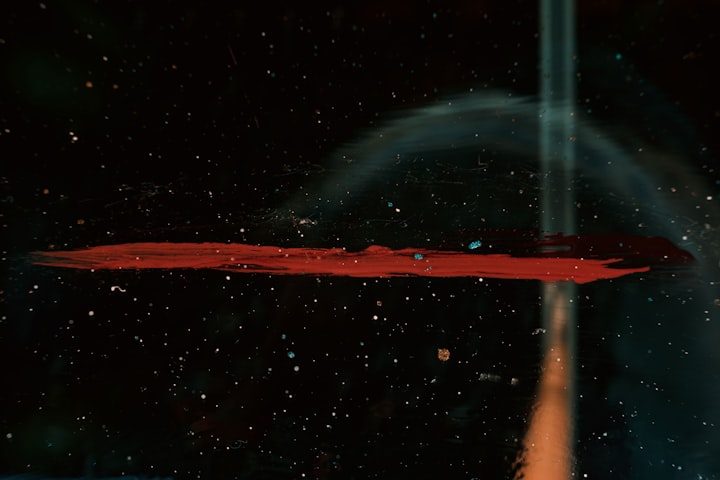
"The Divine Invasion" by Philip K. Dick is actually a sequel to another PKD book called "Valis." The Divine Invasion is structured with a traditional, science-fiction narrative, while Valis is (definitely) not. Valis, while having a plot, is (in my opinion) a book length series of deeply fascinating, creative, inspired and psychotic journal entries. The entire length of Valis includes philosophy, mysticism, psychology, mythology and religious insights and extrapolation, from any (and every) source. Overall, Philip K. Dick called this wealth of knowledge his "Exegesis." The total Exegesis itself is approximately 8,00o pages. I'd encourage you to read Valis if you want to enter a rabbit hole and then never come back. I'm still in there myself.
The Divine Invasion is my favorite book for several reasons. It includes Philp K. Dicks' personal brand of science-fiction. He was known for innovating the genre with much more depth (at the time) than other science-fiction authors. While most authors were writing "pot-boilers" with your standard laser guns, bikini clad women and aliens, Philip K. Dick was already using the limitless world of sci-fi to extrapolate on the profound.
The Divine Invasion is incredibly interesting to read from cover to cover (which I've done multiple times). It contains all of the philosophical, psychological, and religious content that Valis has, while also being a story that moves from point A to B.
The story starts with a man named Herb Asher re-living his memories living on a space colony (six years prior), while in cryo-sleep after a serious car accident. Herb dreams of when he lived on a planet in the star system CY30-CY30B. He began experiencing a deity named "Yah," who had been exiled to the same planet. Yah orders him to assist a woman named Rybys, who is living in a neighboring dome on the planet.
Rybys is dying from multiple-sclerosis and pregnant with the human, divinely concepted, human incarnation of Yah. Not soon after, they receive assistance from a real life T.V. character, and mystical being, named Elias Tate. Herb agrees to legally marry Rybys and play the role of Yah's father. These events lead to them returning to Earth while Rybys is still pregnant. The totalitarian, communist government (along with it's planetary A.I. "Big Noodle") does everything in it's power to stop them. This is a superficial summary, as the book has many layers, and heavily investigates many themes.
What inspired me most about this book is that it has a heart. Which is to say, it has (in my opinion) a happy ending. Much of Philip K. Dicks writing has a lingering sense of dystopia, confusion and madness. By the time I reached point B, I had the sense that things worked out in the end.
I first read The Divine Invasion when I was in high-school. I forget which year exactly. I read through it quickly, turning page after page as I was fascinated by the way Philip K. Dick saw the universe. I had read Valis first (multiple times). Philp K. Dick based much of Valis on a mystical/religious experience he had; involving a space satellite using a pink laser beam to impart information into his brain. This experience would be prevalent through Valis, the Divine Invasion and much of his writing.
If you have no prior experience with Philip K. Dick, you are probably already getting the impression that he rode that Nietzschean fine line between madness and brilliance. As to which one defined him more (he died in 1982), I'd lean towards brilliance.
Rybys' son Emanuel (or Manny) now six years old, must recover his memory (and remember that he is Yah) via the help of a fairy/Greek Goddess/fellow classmate named Zenia. Yah had been exiled to a planet (the one with the domes) in the CY30-CY30B star system 2000 years prior. These events lead to the devil (Belial in the story) ruling Earth for 2000 years. Manny, recalling his true purpose as Yah, would lead to the overthrow of Belial and the totalitarian hegemony on Earth.
Eventually, Zenia shows Manny an alternate dimension, in which the devil is a child goat, living in a zoo. In a lapse of judgement, they release Belial from the zoo. The story (mostly) returns to Herb Asher at this point. Belial tries to convince Herb Asher that he is good and Yah is ugly. Much of the story is told through Herb Asher as (in my opinion) a sort of "everyman" observer. Imagine Nick Carraway from The Great Gatsby, but in space.
Herb eventually makes contact with a singer he is obsessed with, named Linda Fox. Herb meets his own personal savior. Linda reveals herself to actually be a spiritual entity called "The Beside Helper." Belial tries to convince Herb that Linda is ugly, but in the final scene, Herb realizes Linda is beautiful, and it was simply the devil's illusion that made her appear ugly. This part is what qualified it as a happy ending for me. The book ends with the suggestion that everyone in the entire world must make this choice as well.
As someone in high school, this book did a lot to inspire me to write about what I believed in. Philp K. Dick was much more concerned with the profound and philosophical than most of his science-fiction contemporaries at the time. His knowledge of religion, philosophy and mysticism seemed to be the driving force behind his writing; plus an obsession with knowing what could be proven as "real or not."
Much of his writing might give a person the sense that he felt hopeless. That it was all about death, madness, isolation, paranoia and existential threats that couldn't even be quantified. But, in my opinion (and if you read between the lines) this is actually a choice. Each man's soul is a balance between light and dark. Light can invade you just as much as the darkness can.
About the Creator
Po Ivey
Po Ivey lives in Madison, WI, where he writes fiction in his free time. His inspiration includes Kurt Vonnegut, Philip K. Dick and William Gibson. He write's about the nuances that make the whole world a cast of actors. He also plays music.






Comments
There are no comments for this story
Be the first to respond and start the conversation.